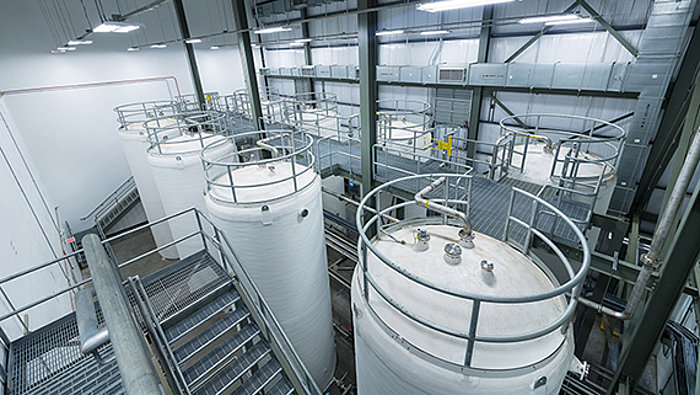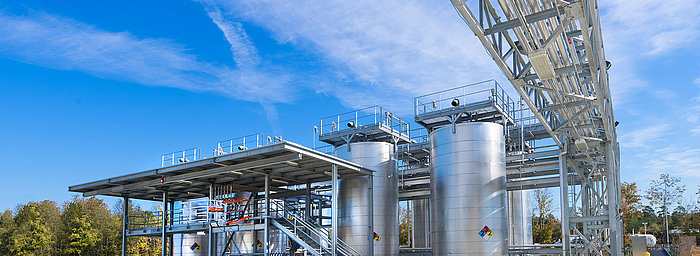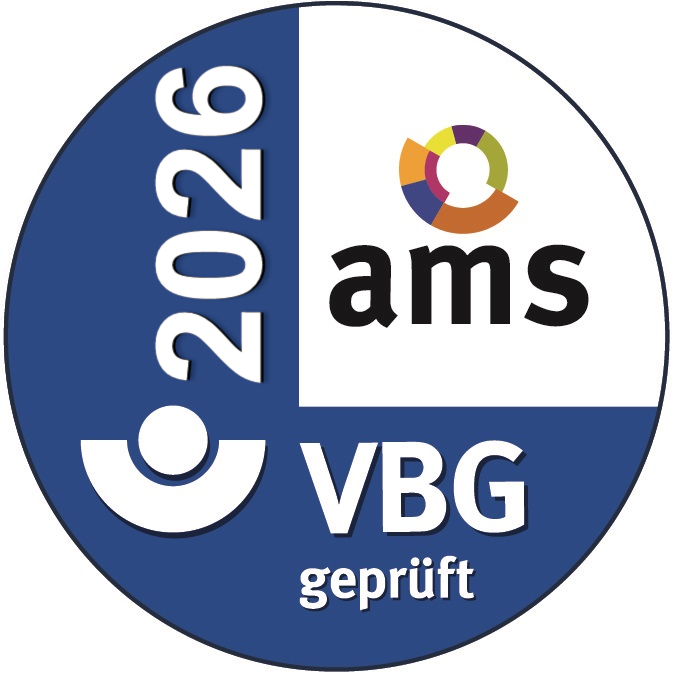Bulk Storage System
Bulk Storage System
Bulk Storage Systems are essential infrastructure in many branches of industry and play a central role in the storage and handling of various liquids and gases and are an integral part of modern economic sectors such as the chemical, oil and gas industries as well as in the field of water treatment and agriculture.
The safe and environmentally friendly storage of liquids and plastics is a complex task that requires constant attention and adaptation to new requirements. As a manufacturer of tank systems, we strive to meet the highest safety standards and contribute to the safety of people and the environment through continuous innovation and improvement.
Functions of Bulk Storage Systems
The main function of bulk storage systems is to store liquids or gases safely. Various substances, such as fuels, chemicals, water, food products or industrial waste, can be stored. In addition to the pure storage function, tank systems also offer the possibility of temperature control, mixing and pressure regulation of the stored substances. They serve as buffers to support production processes and ensure security of supply.
Types of bulk storage systems
Bulk storage systems can be classified according to various criteria, such as the design, the material or the intended use:
- Above-ground tanks: these facilities are located above ground and are often easier to access and maintain. They come in various shapes and sizes, such as cylindrical, spherical or rectangular tanks.
- Underground tanks: These are located underground and offer the advantage of saving space and are often better protected against external influences. However, they are more difficult to maintain and inspect.
- Pressurized tanks: These tanks are designed to withstand high pressure and are often used for gases or volatile liquids.
- Non-pressure tanks: These tanks are designed for liquids that can be stored at ambient pressure, such as water or non-volatile chemicals.
- Special tanks: These include tanks that have to meet special requirements, such as double-walled tanks to prevent leaks, tanks with heating or cooling systems or tanks made of special materials for aggressive chemicals.
Purplan tank systems for all substances
Purplan offers specialized tank systems for a wide range of substances used in various industrial processes. These include:
- Polyol, MDI, TDI: These substances are essential components in the production of polyurethanes used in foams, sealants and coatings.
- Resin, hardener: These are valued in plastics production and in the construction industry for their hardening properties
- Binders: Important components in the production of paints, varnishes and adhesives.
- Glues, bitumen: Indispensable in the construction industry and for road surfaces.
- Acids, alkalis: Frequently used in the chemical industry and in water treatment.
- Activators, catalysts: These substances accelerate chemical reactions and are essential in many production processes.
- Flame retardants: These chemicals are added to reduce the flammability of materials.
- Glues, adhesives: Indispensable in everything from the packaging industry to electronics.
- Glycols: These are used as coolants, antifreeze agents and in the production of plastics.
- Polyester resins: Used in the manufacture of composite materials and in the construction industry.
Safety aspects of tank systems
The safety of tank systems is of the utmost importance in order to prevent damage to the environment and health. Various measures and technologies are available for this purpose:
- Leak monitoring systems: These systems detect leaks of liquids or gases at an early stage and enable a rapid response to minimize damage.
- Corrosion protection: Metal tanks must be protected against corrosion, for example by coatings or cathodic protection systems.
- Explosion protection: When storing flammable liquids and gases, special measures are required to minimize explosion hazards, such as pressure-relieving equipment or inertization.
- Fire protection: Tank facilities must be equipped with suitable fire protection systems, such as sprinkler systems, fire walls and fire extinguishing systems.
- Regular inspections and maintenance: To ensure operational safety, regular inspections and maintenance of tank systems are essential. This includes checking seals, valves and safety equipment.
Norms and standards for tank systems
- Underground tanks according to DIN 6608: Underground steel tanks, also known as underground tanks, are designed for the storage of flammable, non-flammable or water-polluting liquids. Due to their underground installation, these tanks offer special protection against external influences and minimize the risk of environmental damage in the event of leaks.
- Above-ground tanks according to DIN 6616: Above-ground, single-walled and double-walled, horizontal tanks made of steel are manufactured in accordance with this standard. They are specially designed for the storage of water-polluting, flammable and non-flammable liquids. Double-walled tanks offer additional protection against leaks, as the second wall acts as a safety barrier.
- Cellar tanks according to DIN 6625: This standard refers to above-ground, angular containers made of steel that store liquids with a flash point of more than 55 °C. Cellar tanks are particularly suitable for installation indoors, such as cellars, and offer efficient use of space thanks to their shape.
Legal requirements and environmental protection
The Water Resources Act (WHG) aims to protect surface water and groundwater from contamination. Our tank systems comply with the strict requirements of the WHG to ensure the safe storage and handling of water-polluting substances.
We also comply with the German Ordinance on Industrial Safety and Health, which sets out requirements for the safe operation and regular inspection of tank facilities. Through regular maintenance and inspections, we ensure that our tank systems are always in perfect condition and comply with legal requirements.
Sustainability and modernization
Modern and improved usage practices as well as important environmental protection standards require the continuous further development and refurbishment of existing tank facilities. By using new materials and technologies, we help to extend the service life of our tank systems and increase their safety.
Our commitment to sustainability is also reflected in our efforts to minimize the ecological footprint of our products. We achieve this by using resource-saving manufacturing processes and promoting the recycling of old tank systems.
- Bulk Storage
- tank-farm
- tank-farms
- bulk tank farms
Synonyme für Bulk Storage System





